ASOM Laboratory
Instruments at the ASOM laboratory:
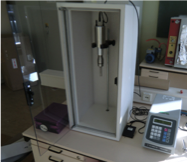
Tip Probe sonicator: it creates ultrasound waves through the tip directly into a solution thus enable emulsification of two immiscible liquid phases (such as chloroform and water) or homogeneous redispersion of particulates.
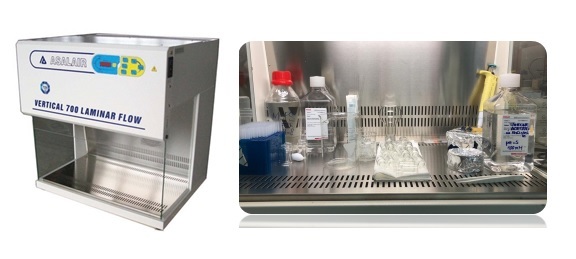
Laminar flow hood: necessary for maintenance of sterility while working with biomaterials designed for cell or in vivo implants. On the contrary of chemical hood it avoids entrance of bacteria and contaminants, thus preserving the sample inside.
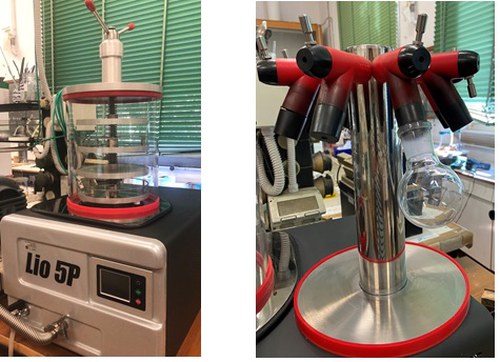
- Lyophilizer: it decreases temperature and pressure below the water triple point, thus allowing to remove water from a sample through sublimation instead of evaporation or hot-drying. This methodology is used in pharmaceutical industries for storage of product/drugs as powder, without affecting their original structure and enabling very fast and easy redispersion. The ASOM laboratory is equipped with a Lio 5Pascal freeze drying system with a column manifold for drying materials in flasks or in bulk (vials) with the possibility of sealing the samples in vacuum.
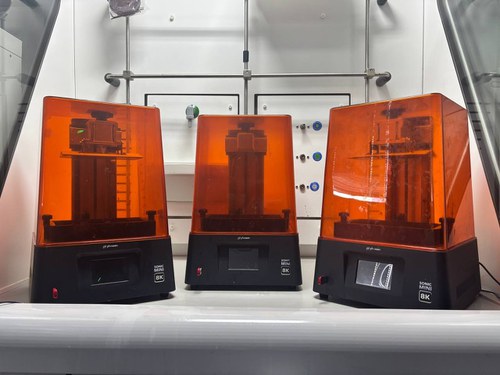
SLA 3D printer and UV post-curing systems:
thanks to the most modern technology and after 3d model software manipulation, it allows the three-dimensional printing of objects from a liquid resin thanks to localized photocuring induced by a high energy UV laser. Then, the optimal post-curing of 3D printed object in ensured in a high intensity UV curing oven.
We actually have available in our lab three printers with the highest resolution of 22 µm and 1152 ppi, Sonic Mini 8K surpasses all consumer electronics on the market. The 7.1” LCD screen & 18 cm Z-axis are perfect for printing all sorts of extremely intricate miniatures, bust sculpts, and more.
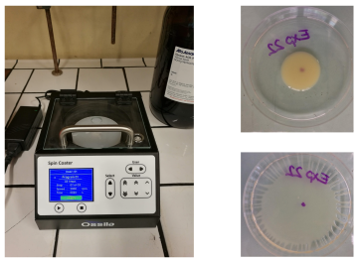
- Spin coater: this technique is used for the deposition of thin films of materials onto supports or for creation of self-standing 2D films made of synthetic as well as natural polymers. The obtained films, with thicknesses in the order of micro/nanometers, find their applications in the field organic electronics.
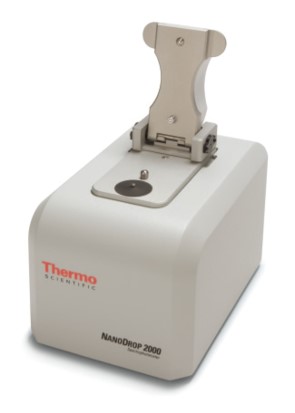
Nanodrop: small and portable UV-Vis spectrophotometer. It requires 2 microliters of sample for analysis. Particularly useful for biomedical test.
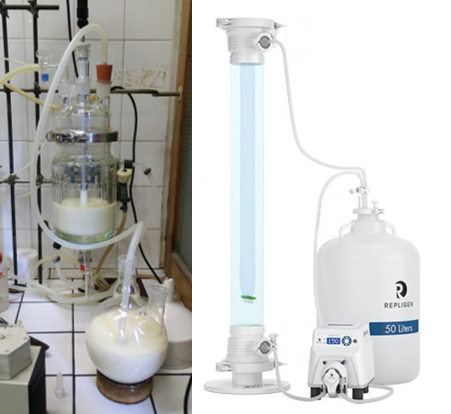
- Large Scale Synthesis and Purification Apparatuses: a thermoregulated 3-L glass reaction vessel equipped with a mechanical stirrer and a 20-L close-cycle dialysis system enable the optimization of high throughput synthetic and purification processes.
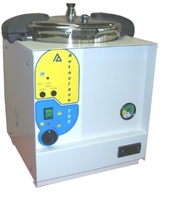
- Autoclave: Steam sterilizer that generates an operating pressure of 1 atm corresponding to a sterilization temperature of 121°C. Equipped with a 20 L stainless steel sterilization chamber complying with the requirements of directive 97/23/EC (PED).
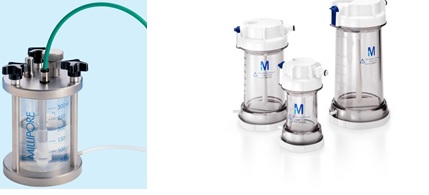
- Millipore Amicon Stirred Cell: this stirred cell model provides high flow rates with solutions up to 10% macrosolute concentration. Capable of rapid concentration, or salt removal followed by concentration in the same unit. The laboratory is equipped with two different Stirred Cell systems: one is Borosilicate glass cylinder and PTFE components for broad compatibility, suited for organic solvent samples concentration; the other is Polysulfone and is used for aqueous media samples.
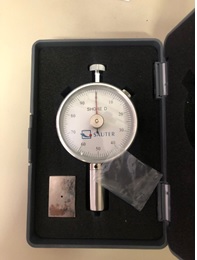
- Durometer: the Sauter hardness meter is used to quickly and safely test the hardness of different types of material. The different types of penetration depths are known as 'shore'. We employ this
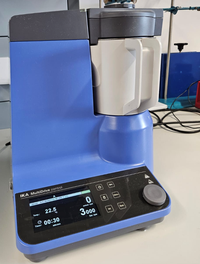
Universal grinder:
The IKA Multidrive Control is a versatile universal grinder designed for a wide range of sample types. It features interchangeable milling heads, including options compatible with liquid nitrogen, allowing for temperature-controlled grinding of sensitive or fibrous materials.
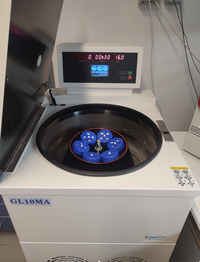
Centrifuge:
GL10MA centrifuge is a high-speed, refrigerated and large capacity centrifuge controlled by a microprocessor, widely used in blood banks, radioimmunology, biochemistry, pharmaceutical industry and many other fields. The maximum speed of GL10MA centrifuge is 10.000 rpm, with a maximum RCF of 18.300xg and a maximum capacity of 6L.
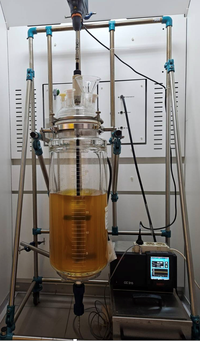
Large Scale Synthesis Reactor:
30L glass jacketed reactor with stirrer for scale-up of synthesis from laboratory to pilot scale. The reactor temperature is controlled by a Huber CC-315B circulation thermostat with stainless steel bath, that enables the implementation of internal and external temperature control tasks.